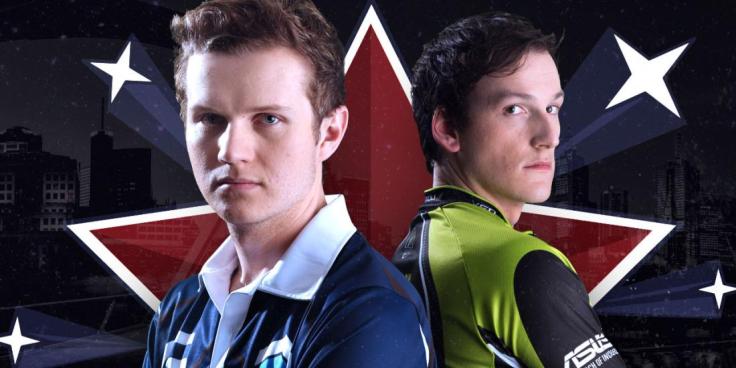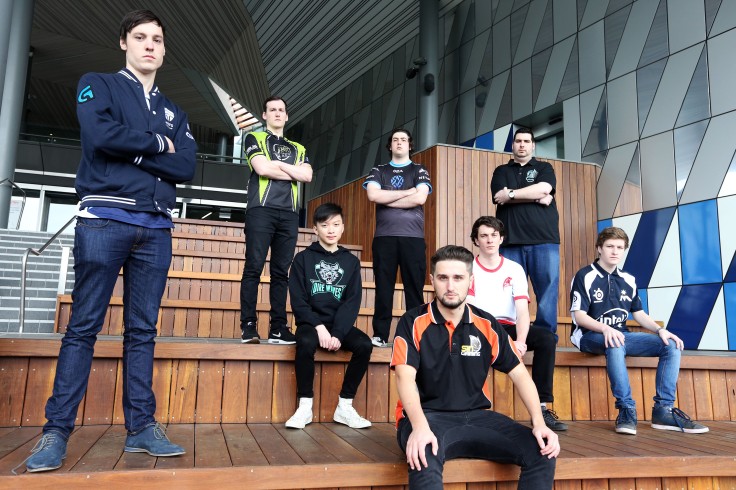By Philip Ritchie
Like the abundance of video games that seek to mirror its success, League of Legends (LoL) teleports players inside their own mythical domain, wrought with havoc and clad in iron, facing all the horrors of the fantasy world where the single tap of a mouse or keyboard holds their fate.
This time though, every click hosted a roar from more than 6000 spectators packed inside one of Melbourne’s finest tennis fields, Margaret Court Arena.
“We’re putting in a lot of effort to start putting on great events and start growing e-sports here,” said Daniel Ringland, head of e-sports and competitive at Riot Games Oceania.
Culminating in a four-day showdown known as the International Wildcard All-stars (IWCA), Riot, the organisation in charge of LoL, saw Australian players competing against professionals from the likes of American, Japan and Brazil in the hopes of joining in the All-Star Event in Los Angeles this December.
The IWCA event caps off the first fully paid Oceanic Pro League season for the Australian LoL scene – and it’s a large one – with as many as 32 million viewers at this year’s LoL Championship
Previous prizes for international-scale events have been overshadowed by the prize from Valve Corporation’s Dota 2 final earlier this year, with an unprecedented US$18m, though this only scratches the surface of the e-sports iceberg.
Globally, it has advanced into a strange phenomenon over its 10-year lifespan, managing to exceed the revenue of the music industry by US$20bn in 2014, which raises some questions: how do so few know about it? And why isn’t Australia being clawed at for its clientèle?
Well, if you’re not a male between the ages of 15 and 25, which Riot, says accounts for 90 per cent of all players in their video game, chances are you don’t know about it. But at the same time, 40 per cent of viewers don’t play the games they watch.
Gaming as a spectator sport has transitioned from a player-only audience to a composition more on track to mirroring conventional sports, and game makers are desperately trying to attract Aussies in an effort to duplicate its international success.
The industry itself in the Asia-Pacific region alone is worth $374m, according to SuperData Research, and with professionals now qualifying for the US P-1 Visa, a category previously reserved for professional athletes, it may actually be time to start accepting video games as a contemporary take on sport.
But “it’s still early days for Oceania,” said Mr Ringland.
Avenues for Aussies
Sure, Australians have won competitions overseas and walked away with their bills paid, but until Australia becomes a professional circuit itself, it won’t reach the critical mass required to convert its population into game-loving super fiends.

Ringland explained, “If you look at other regions like North America and Europe and Korea, they’ve kind of had professional play going on for five years now. Riot has only been active in Australia as an office for less than half of that time. We think 2015 was out first full season.”
Riot has been one of the first to make a real effort towards changing the professional landscape.
“Every player who played in Oceanic Pro League (OPC) got paid for every game they were in, whereas previous seasons, the only people that got paid were the winners,” he said, emphasising the feat.
Mr Ringland mentioned further plans for Oceania, which includes orchestrating league matches, continuing to pay players for each match, helping teams find sponsorships and assisting players with relocation to gaming houses retrofitted with the NBN (a residence designed solely for player practice).
“They [players] know what they want to do and we don’t want to tell the team how they should go about growing themselves. We’re more about empowering them so they can do what they think is best for them.”
This doesn’t mean Riot is abandoning players or forcing them to fend for themselves though.
Earlier this year, Riot issued a two-year ban on Team Immunity for failing to pay their players, bearing down the harsh reality that gaming is no longer just a trivial pursuit.
And with Riot playing host to a massive 27 million daily visitors, there’s a real possibility they will make a target out of Australia, bringing rise to more e-sports opportunities and the industry as a whole.
Thoughts from the players
Dota 2 player and former member of Trident eSports, Benjamin ‘Gatekeeper’ Ward, welcomes the changes.
“It has a lot of potential to become the next big sport, and I think there are quite a few people around the world noticing that, but it’ll just take a bit of time before its widely renowned as a sport,” he said.
The absence of league games in Australia over the last few years has seen an unquantifiable number of potential professional players left without the means to compete, except on smaller, local levels or the much rarer, larger, paid event.

“Now Dota is just for fun, leisure and enjoyment. I did want to play for money before, but because there was no opportunity it’s not really that feasible. If it was I’m sure there’d be a lot more people that would do it,” said Mr Ward.
He maintains the most important thing for keeping afloat as a professional is sponsorship, providing both the means and the incentive to stay sustained during the harsh downtime between competitions.
James Valentine, former local tournament competitor and friend of Benjamin Ward, is also a long-time Dota 2 player, operating under the alias, ‘JXXV.’.
While both players believe a small salary of around $500 per week could be all that stands between an amateur and competing in the next Dota 2 International, they want to see incentives much like Riot’s proposed plans of sponsorship assistance and match payment.
“If there was actually like a viable way to do it, like if you or me could just sign up for a team or something and go local, and then just play everyone else and then get to a point where you get paid to do it, then yeah, I’d put a lot more effort into it,” Mr Valentine said.
“Nothing really goes on as far as e-sports go here,” he added, “I don’t think many people know about it, the mainstream media definitely don’t know about it. But it could spring up out of nowhere and maybe a lot of people would enjoy it at that point. They’d have no idea what was going on. They’d have to take a little bit of a time out to learn the game even just a little, and then they might all enjoy it.”
With backing from giant organisations, like Riot, the challenge players must face now is what Mr Ringland describes as an “awkward growth sports stage” in which plans are laid out and players are on track to becoming full-time professional players, but “we’re not quite there yet”.

Leave a comment